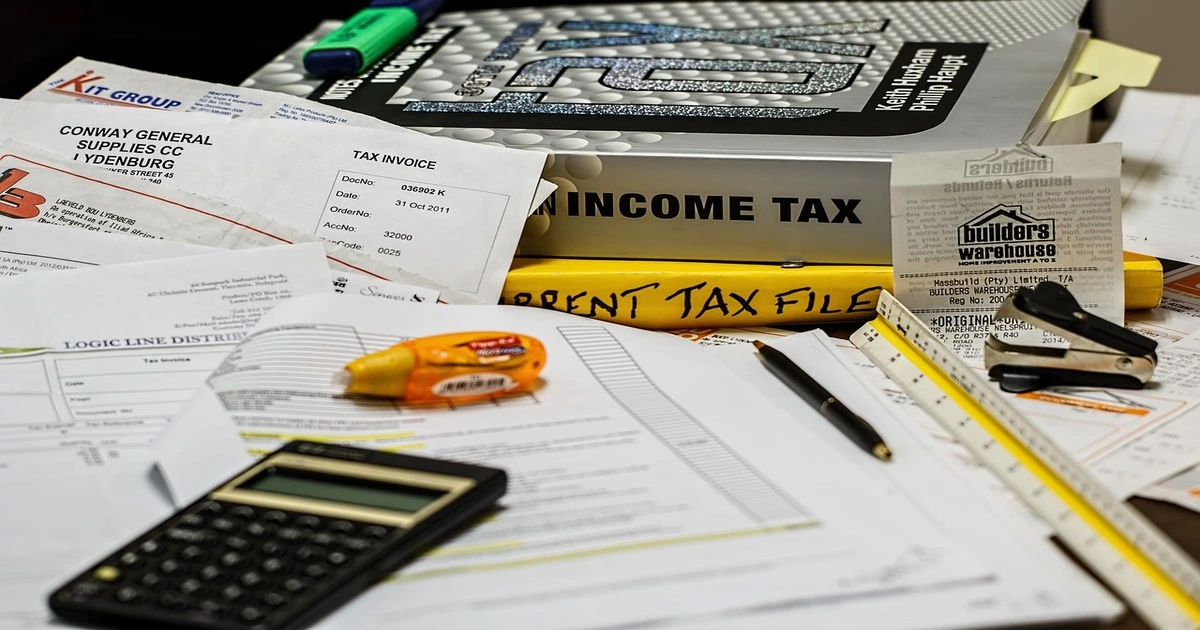Understanding Council Tax Liability When Renting Property
In the UK, council tax is a taxation system that funds local services such as police, fire services, and garbage collection.
Understanding your council tax liability is crucial, especially for tenants renting property.
This article aims to clarify who pays council tax on rental properties and what factors determine this responsibility.
Who Pays Council Tax in Rental Properties?
Council tax liability in rental properties typically falls on the tenant. According to UK regulations, tenants are responsible for paying council tax unless the tenancy agreement states otherwise.
This means that as a tenant, you are legally obligated to ensure the council tax for the property you occupy is paid promptly.
Factors Determining Council Tax Liability
Occupancy Status
Council tax liability is primarily based on the occupancy status of the property:
- Single Occupancy: If you are the sole occupant of the property, you are eligible for a 25% discount on council tax.
- Multiple Occupants: If multiple tenants exist, the full council tax is typically divided among them unless exemptions apply.
Tenancy Agreement
Your tenancy agreement outlines specific terms regarding council tax responsibility. Reviewing this document to understand your obligations as a tenant is crucial. Landlords may sometimes include council tax in the rent, which should be clearly stipulated in the agreement.
Property Ownership
The responsibility for council tax lies with the property’s occupier, whether owner or tenant.
If you rent, this responsibility shifts to you during the tenancy period. Homeowners are naturally responsible for council tax unless the property is unoccupied.
Exemptions and Discounts
Student Exemption
Full-time students are exempt from paying council tax. If all property occupants are students, the property is considered exempt. Part-time students do not qualify for this exemption.
Council Tax Reductions
Council tax reductions or discounts may apply in certain circumstances:
- Low Income: Depending on your income, you may qualify for a council tax reduction scheme offered by your local council.
- Disability: If you or someone you live with has a disability, you may be eligible for a council tax reduction or exemption.
Responsibilities of Landlords and Tenants
Landlord’s Responsibilities
While council tax is generally the tenant’s responsibility, landlords must ensure that the property’s council tax status is clearly communicated in the tenancy agreement and inform the local council when tenants change.
Tenant’s Responsibilities
As a tenant, it is your responsibility to:
- Understand your council tax liability as per the tenancy agreement.
- Pay council tax promptly to avoid penalties or legal issues.
- Inform the local council of any changes in occupancy or eligibility for exemptions.
Conclusion
Understanding council tax liability in rental properties is essential for both tenants and landlords to ensure compliance with UK regulations.
This article aims to provide comprehensive guidance to help tenants navigate their financial responsibilities effectively by clarifying who is responsible for paying council tax and under what circumstances.
By following these guidelines and understanding the nuances of council tax liability, tenants can avoid potential disputes and ensure a smooth rental experience.
Consulting with a legal professional or local council office is advisable for further details or specific inquiries.
Additional Considerations for Council Tax Liability
Unoccupied Properties
If a property is vacant or unoccupied, the council tax responsibility falls on the owner. However, certain exemptions, such as properties undergoing major renovations or being actively marketed for sale or rent, may apply.
Temporary Absences
Sometimes, tenants may temporarily leave the property (e.g., for work or travel). The council tax liability during such periods depends on the circumstances:
- Short-term Absences: Council tax liability generally remains with the tenant if they intend to return to the property.
- Long-term Absences: If the property remains unoccupied for an extended period, the landlord or property owner may be liable for council tax unless specific exemptions apply.
Housing Benefit and Council Tax Support
Tenants experiencing financial difficulties may be eligible for Housing Benefit or Council Tax Support to help cover council tax payments. These benefits are means-tested and vary based on individual circumstances and local council policies.
Steps to Ensure Compliance
Regular Communication
Maintain open communication with your landlord or letting agency regarding council tax responsibilities. Ensure that any occupancy or changes in personal circumstances are promptly reported to avoid misunderstandings.
Understand Local Regulations
Council tax regulations may vary slightly between different local authorities. Familiarise yourself with your area’s specific rules and procedures to ensure compliance.
Seek Professional Advice if Needed
If you need more clarification about your council tax liability or eligibility for exemptions, seek advice from a qualified advisor, such as a housing rights organisation or legal professional specialising in landlord-tenant law.
Navigating council tax responsibilities as a tenant in the UK involves understanding legal obligations, exemptions, and local regulations.
By adhering to the guidelines outlined in this article and staying informed about changes in council tax policies, tenants can effectively manage their financial responsibilities and maintain a positive relationship with landlords and local authorities.
For further information or specific inquiries regarding council tax liability in rental properties, contact your local council office or visit their website.
Being proactive and informed ensures tenants can handle council tax matters confidently and responsibly.
Frequently Asked Questions (FAQ)
Who is responsible for paying council tax on a rented property?
The tenant is typically responsible for paying council tax in rented properties unless the tenancy agreement states otherwise.
It’s important to review your agreement to understand your specific obligations.
Are there any exemptions from paying council tax as a tenant?
Yes, certain exemptions apply:
- Student Exemption: Full-time students are exempt from paying council tax. If all property occupants are full-time students, the property is exempt.
- Council Tax Reductions: Reductions or discounts may apply based on income, disability, or other criteria. Contact your local council for more information.
What should tenants do if they are unsure about their council tax liability?
Tenants should:
- Review their tenancy agreement for specific terms regarding council tax.
- Contact their landlord or letting agency for clarification.
- Consult with their local council or a legal advisor if further guidance is needed.
Can council tax liability change during a tenancy?
Council tax liability can change based on occupancy status, exemptions, or changes in local regulations. It’s important to stay informed and promptly communicate any changes to relevant parties.
How can tenants ensure they pay council tax correctly and avoid penalties?
Tenants should:
- Understand their council tax liability and payment schedule.
- Pay council tax promptly to avoid penalties or legal issues.
- Inform their local council of any changes in occupancy or eligibility for exemptions.
What should landlords do regarding council tax in rental properties?
Landlords should:
- Clearly outline council tax responsibilities in the tenancy agreement.
- Inform the local council of tenant changes or property status updates.
- Support tenants in understanding their council tax obligations to maintain compliance.
Where can tenants find more information about council tax?
Tenants can:
- Visit their local council’s official website for detailed information and resources.
- Contact their local council office directly for personalised assistance.
- Consult with housing rights organisations or legal professionals specialising in landlord-tenant law for expert advice.
Navigating council tax responsibilities as a tenant requires understanding legal obligations, exemptions, and local regulations.
By staying informed and proactive, tenants can effectively manage their council tax responsibilities and ensure compliance with UK laws. Always contact relevant authorities or seek professional advice for specific inquiries or further assistance.
Links
Gov.uk – Council Tax: Official government website providing comprehensive information on council tax, including rates, exemptions, and how to pay. Gov.uk – Council Tax
Shelter – Council Tax for Tenants: Guidance from Shelter, a housing and homelessness charity, on understanding council tax responsibilities as a tenant. Shelter – Council Tax for Tenants
Citizens Advice – Council Tax: Advice and information from Citizens Advice Bureau on council tax, including how it’s calculated and what to do if you have problems paying. Citizens Advice – Council Tax
MoneySavingExpert – Council Tax: Practical tips and advice from MoneySavingExpert on reducing council tax bills and understanding eligibility for discounts and exemptions. MoneySavingExpert – Council Tax
Local Council Websites: Visit your local council’s official website for specific information tailored to your area, including council tax rates, payment options, and local policies. (Example: City of London Council – Council Tax)
These links provide valuable resources for tenants seeking further information on council tax in rental properties, including eligibility for exemptions, payment options, and how to handle disputes or issues related to council tax.
Refer to authoritative sources and local council guidelines for the most accurate and up-to-date information.
The British Landlords Association is a national landlord association for UK landlords and one of the largest landlord associations in the UK. Join us now for £79.95!
Our top read blogs:
How to avoid tenants from Hell!
Free Landlord Helpline for UK Landlords 2024
Landlords & agents how water tight is your Guarantor Agreement?
How to Succeed to a council tenancy & Who do I tell when a tenant dies?
Disclaimer:
This post is for general use only and is not intended to offer legal, tax, or investment advice; it may be out of date, incorrect, or maybe a guest post. You are required to seek legal advice from a solicitor before acting on anything written hereinabove.





